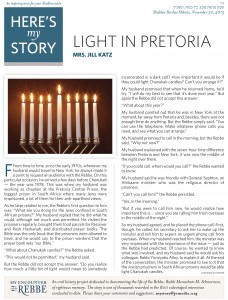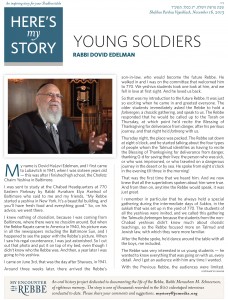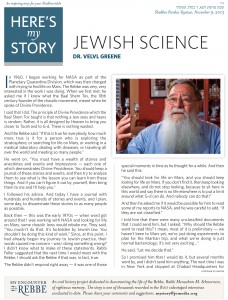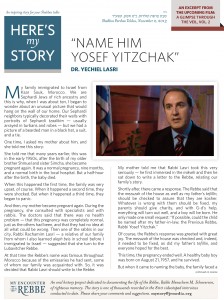HMS: Light in Pretoria
From time to time, since the early 1970s, whenever my husband would travel to New York, he always made it a point to request an audience with the Rebbe. On this particular occasion, he arrived a few days before Chanukah – the year was 1978. This was when my husband was working as chaplain at the Pretoria Central Prison, the biggest prison in South Africa where many Jews were imprisoned, a lot of them for their anti-apartheid views.
As he later related to me, the Rebbe’s first question to him was, “What are you doing for the Jews confined in South African prisons?” My husband replied that he did what he could, although not much was permitted. He visited the prisoners regularly, brought them food parcels for Passover and Rosh Hashanah, and distributed prayer books. The Bible was the only book that the prisoners were allowed to have, and he would say to the prison wardens that the prayer book was “our Bible.”
“What about Chanukah candles?” the Rebbe asked.
“This would not be permitted,” my husband said.
But the Rebbe did not accept this answer: “Do you realize how much a little bit of light would mean to somebody incarcerated in a dark cell? How important it would be if they could light Chanukah candles? Can’t you arrange it?”
My husband promised that when he returned home, he’d try. “I will do my best to see that it’s done next year.” But again the Rebbe did not accept this answer:
“What about this year?”
My husband pointed out that he was in New York at the moment, far away from Pretoria and, besides, there was not enough time do anything. But the Rebbe simply said, “You can use the telephone. Make whatever phone calls you need, and see what you can arrange.” (more…)








